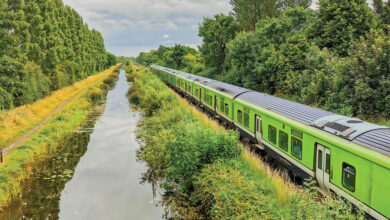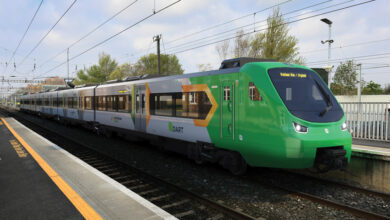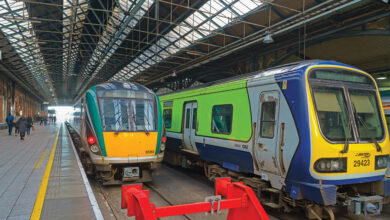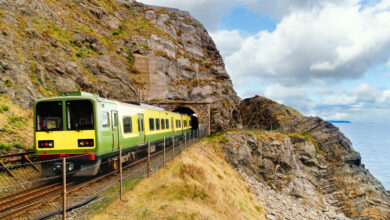Keolis expertise in shared mobility
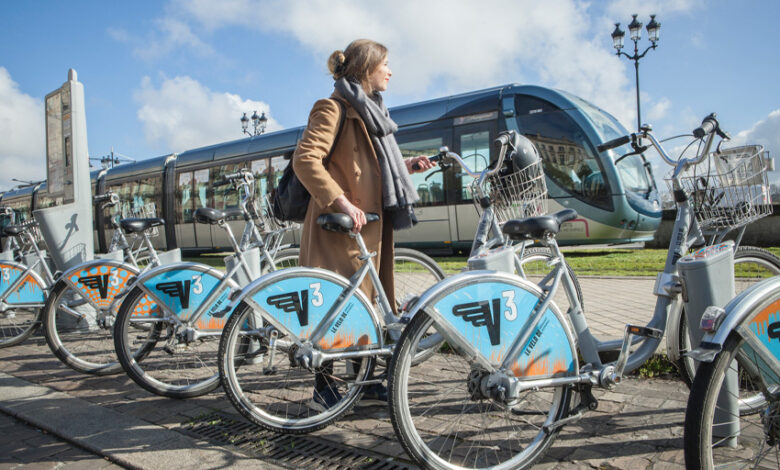
Keolis operates and maintains city, suburban and intercity networks on behalf of over 300 public transport authorities in 13 countries. With 68,000 employees across the globe, our group has expertise in 13 different mobility modes, ranging from trains to bicycles, buses and sea and river shuttles.
From on-demand transport to autonomous vehicles, medical transport, carpooling, carsharing, and parking, we are present across the whole mobility chain. The company’s turnover for 2022 amounted to €6.7 billion.
Keolis offers sustainable solutions to meet the challenges of mobility
Working in partnership with public policymakers, Keolis develops and operates safe, smart, and sustainable shared mobility solutions that meet the needs of passengers, the constraints of local regions and the challenges of the modern world.
In keeping with our public service commitment, our objective is clear: to offer appealing alternatives to private cars. With this goal in mind, we are focused on responding to the challenges of the mobility sector: the ecological transition, the digital transformation of lifestyles, and the changing the expectations of local communities.
A global leader in automated metros and trams
Keolis is a pioneer and global leader in automated metros with nine networks in six countries and 452km of metro lines in operation or under construction. Keolis is also the world’s leading tram operator with 26 tram networks worldwide in nine countries and over 1,000km of track in operation or under construction, including Melbourne, the world’s largest network, Greater Manchester, the UK’s largest network and Aarhus, Denmark’s first light rail network.
We engage constructively with public transport authorities, whatever phase they identify the need for an operator of their network, including through early operator engagement in advance of the commissioning of new lines or networks. We offer over 40-year lifecycle experience and operator’s perspective to inform the planning and design of metro lines. The benefits include more reliable, efficient, customer-focused metro and tram networks and the right transport choices for growing cities.
A proven track record in multimodality
Keolis has undisputed expertise in operating and maintaining multimodal transport networks in pursuit of an ever more seamless passenger experience. We develop multimodal mobility solutions tailored to each town, city, or region’s specific issues and financial constraints.
Keolis acquires in-depth understanding of changing transport needs from its Keoscopie mobility think tank, which provides insights on current lifestyles to help develop next-generation mobility solutions. This is enriched by a range of data collected by Hove, a newly created Keolis digital company which produces intelligence our teams draw upon to innovate and develop attractive transport solutions.
We strive to provide the best advice to our partners with cost-effective methods, through robust qualitative and quantitative research and analysis. And then we help to shape intermodal networks taking into account key considerations including timetables that meet the passengers’ door-to-door needs; transport hubs that make the customer experience simple and seamless; the development of walking routes and new mobilities which complement traditional modes, particularly for first and last-mile connections and the use of integrated fare systems that can be used across all local transport services.
Our success in developing, operating, and maintaining multimodal integrated networks can be seen in cities including Lyon, Bordeaux, Dijon, and Lille in France and Newcastle in Australia.
Delivering efficiency in maintenance and asset management
Leveraging decades of management of an asset base worth €50 billion, Keolis is implementing a programme named KIHM in many of its subsidiaries to improve network maintenance. An acronym for Keolis industrialises and harmonises maintenance, KIHM is based on practices developed jointly with our operating teams. Its focus is on the continuous improvement of maintenance performance and operational management to achieve significant reductions in breakdowns due to better maintenance organisation and preventive measures.
KIHM allows us to share the group’s best practices globally through the asset maintenance and asset management guidelines that have been defined. These describe the business processes, managerial standards, and key requirements for the implementation of an efficient management system for maintenance and asset management activities in line with the requirements of the internationally recognised certification of ISO 55001 (industrial equipment management system).

Accelerating the transition to low-carbon mobility
Faced with the climate emergency, Keolis is determined to leave the most positive environmental legacy possible for future generations by helping its PTA partners accelerate the energy transition today.
Accordingly, we work to reduce atmospheric pollution and the level of emissions associated with powering our vehicles has become a key consideration in our management decisions. We are also helping our PTA partners decarbonise their fleets, through new tenders and during existing contracts, thanks to the alternative energies expertise housed in our centres of excellence. To improve energy efficiency, we are acting on several fronts at the same time, including training drivers in eco-driving techniques, limiting heating and air conditioning, and using regenerative braking in our metro networks. And, of course, we are relentlessly pursuing our day-to-day objective – enhancing the appeal of safe, smart, sustainable, and shared mobility solutions to curb the use of private cars.
Keolis commitment to the ecological transition is reflected in the three objectives the group has set for 2030:
- cutting greenhouse gas (GHG) emissions by reducing traction carbon intensity by 30 per cent (all modes combined in gCO2e/100 km) compared to 2019;
- reducing air pollution by doubling by 2025 and tripling by 2030 the kilometres operated by alternative energy road vehicles replacing diesel and gasoline compared to 2019; and
- controlling its environmental impact by rolling out ISO 14001 certification for 80 per cent of its revenue by 2030.

E: comms@keolis.co.uk
W: www.keolis.co.uk

